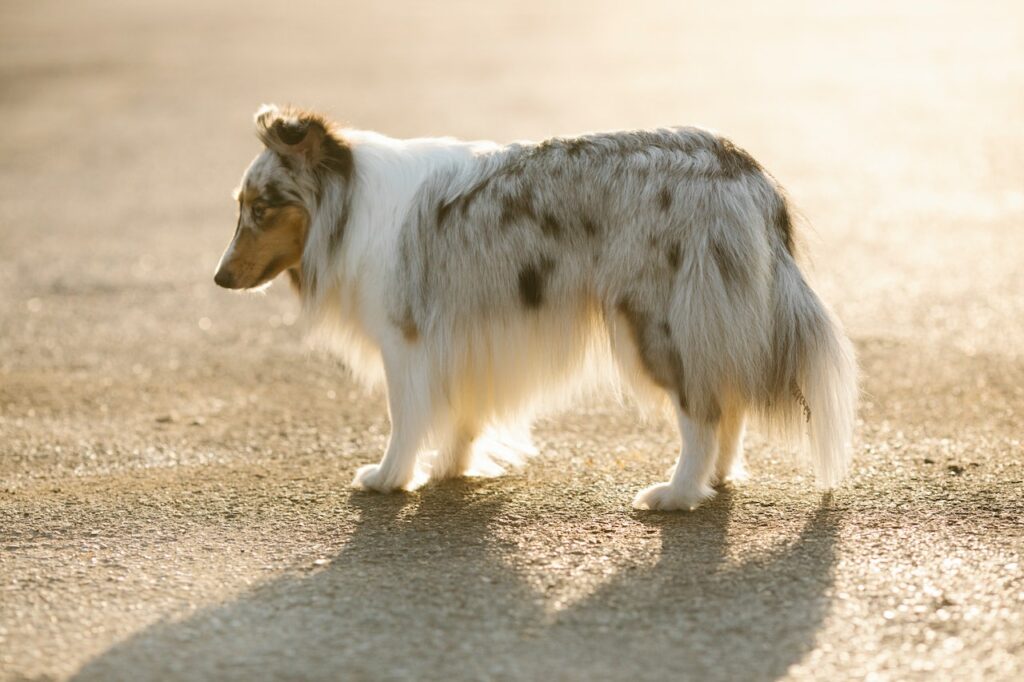Why is my Puppy Eating Stones, and How Can I Stop It?
Are you concerned about your puppy eating stones? Are you wondering what could be causing this behaviour and how to stop it? If so, then this article is for you. Here we’ll discuss the signs and symptoms of puppy-eating stones, potential causes, treatments and tips on prevention. So if your puppy has been snacking on rocks or pebbles lately, read on to learn more!
Why Puppies Eat Stones
Understanding the motivations behind a puppy’s behaviour is essential before attempting to correct it. Why do puppies eat stones? There could be a few answers:
Curiosity
Puppies often explore the world around them using their mouths, so they may be curious about the texture or taste of small pebbles.
Boredom
Puppies need mental stimulation just as much as physical activities, such as walks and playtime. When bored, some puppies may resort to eating stones as an outlet for this pent-up energy.
Nutritional Deficiencies
Puppies may try to satisfy nutritional deficiencies by eating stones due to an unhealthy diet or lack of minerals.
Other medical issues
If your puppy has been diagnosed with a medical problem that leads them to crave non-edible items like rocks or dirt, then there may be an underlying health issue that needs addressing first before dealing with their stone-eating habit.
Preventing Stone Eating In Puppies
The best way to prevent unhealthy habits from developing is by taking proactive steps early on in your puppy’s life:
Provide plenty of stimulating toys
Make sure your pup has plenty of toys that challenge them mentally and keep them occupied throughout the day. Rotating toys every few days can help keep them engaged too!
Monitor closely
Monitor your pup when they’re outside since this is the perfect opportunity for them to find random rocks or pebbles lying around that may tempt them into eating them. If you see anything suspicious, remove it immediately, so they don’t have access to it again later on.
Feed nutritious meals
Feeding your pup healthy meals full of nutrients will help ensure that any nutritional deficiencies are met, thus deterring cravings for nonfood items like rocks or dirt.
Exercise regularly
Exercise not only helps keep your pup physically fit but also mentally stimulated! Take the pup out for regular walks and make sure there are plenty of opportunities for playtime each day, too (especially during those more active periods).
Visit the vet regularly
Finally, scheduling regular visits with your vet will help ensure any underlying medical issues are addressed before they become serious problems – this includes providing advice regarding dietary changes if necessary!
What To Do If Your Puppy Has Already Eaten Stones?
If you’ve noticed signs that indicate your pup has eaten stones (e.g., vomiting or lethargy), then here are some steps you should take right away:
- Contact A Veterinarian Immediately – Don’t hesitate; to call a vet immediately if you suspect stone ingestion for prompt diagnosis and treatment options from qualified professionals who know best how to handle such situations safely and effectively.
- Remove Any Source Of Stones From The Area – As soon as you notice signs that your puppy has eaten stones, ensure all sources of stones in the area have been removed immediately to prevent further intake.
- Give Your Puppy Plenty Of Water – Ensure your pup stays hydrated after stone ingestion by offering him/her lots of water throughout the day; this will also help flush out any potential blockages in their GI tract caused by swallowed stones.
- Monitor Their Stool – Keep an eye on what comes out when they go potty; noticing any signs of blood or mucus typically means something isn’t right inside their stomachs and would warrant immediate attention from a veterinarian.
- Follow Up With Your Vet Regularly – After initially consulting with a veterinarian about stone ingestion symptoms, follow up with checkups periodically over time for proper progress monitoring throughout recovery period(s). Additionally, always seek professional advice whenever concerned about anything related to pet health matters before making decisions independently!
Conclusion
Most pet owners love playing with their pups and watching them grow healthy. So it’s worrisome if one notices any kind of abnormal behaviours developing among our furry friends. Such as eating rocks or other nonfood items like dirt. Thankfully, there are strategies one can take both preventively prior events to occur and reactively once signs present themselves–such as providing stimulating toys while keeping an eye on the environment during outdoor times plus feeding nutritious meals full of vitamins/minerals along with exercising regularly plus visiting vets frequently. Doing all these things will help keep puppy-eating stones at bay and keep your furry friend healthy and happy!
If you’re worried about puppy-eating stones and related health issues, ensure that your pup is insured with Furrr.co.uk! Furrr offers comprehensive insurance plans that provide coverage for vet bills, treatments and other medical costs associated with puppy-eating stones. So you can rest assured that you’re covered in the case of such an event. Get peace of mind today – check out what Furrr offers and get your puppy covered!










